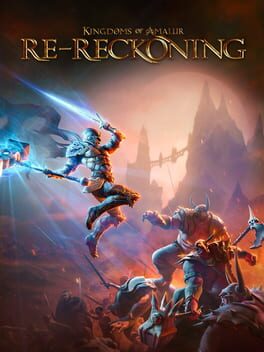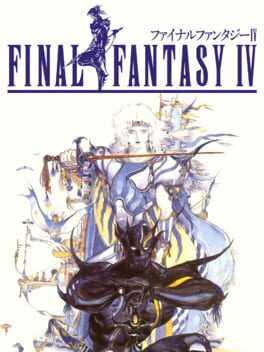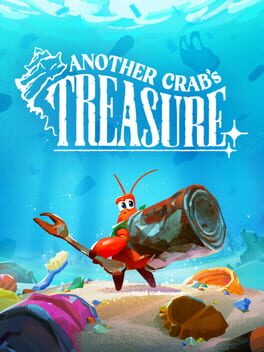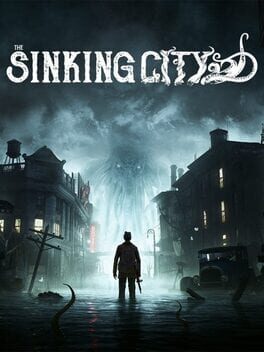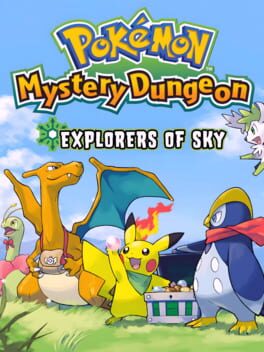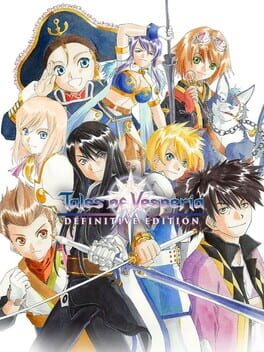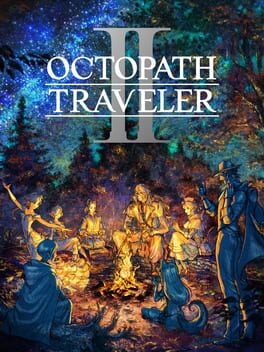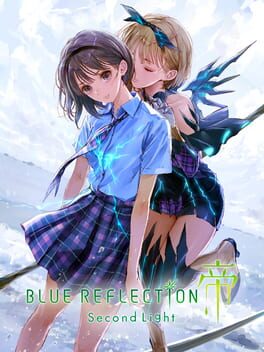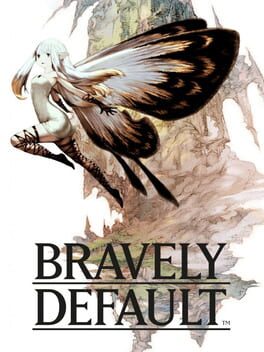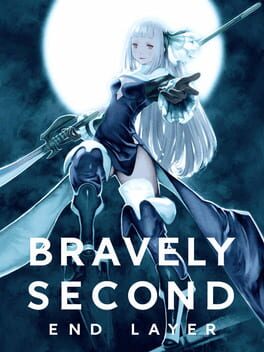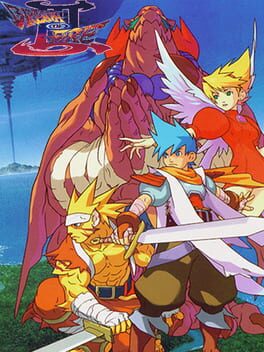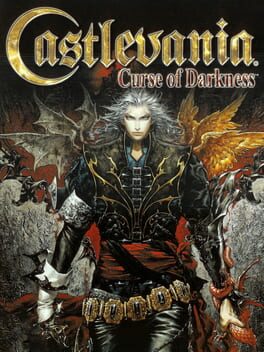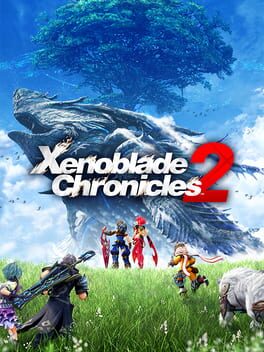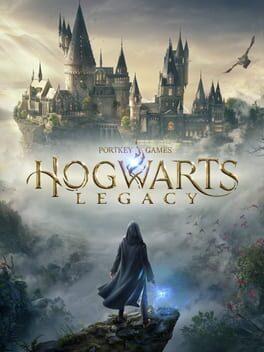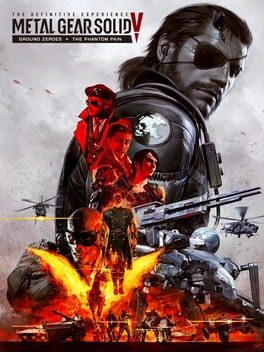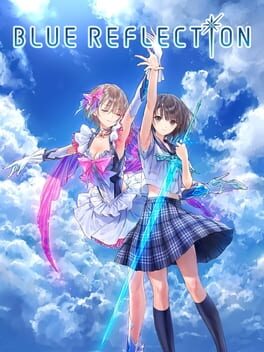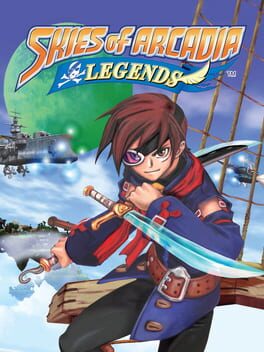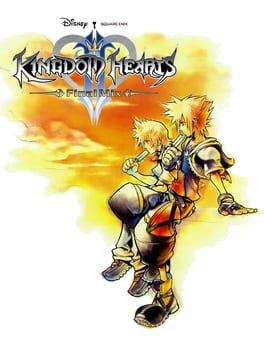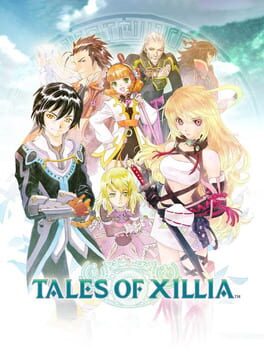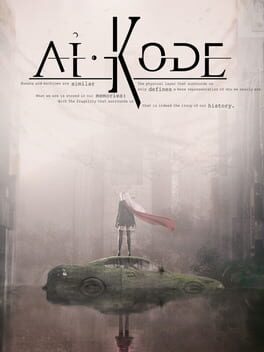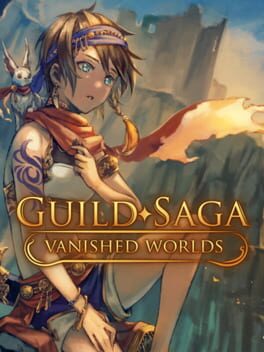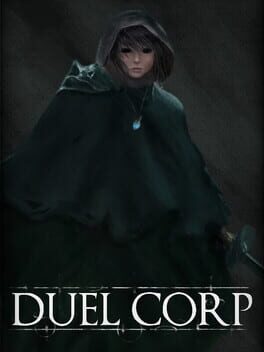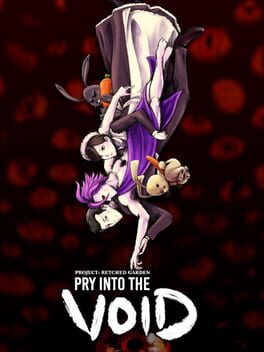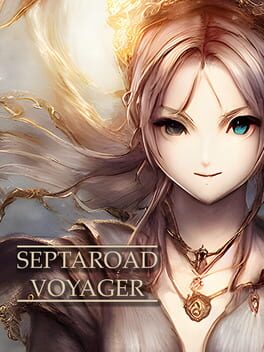236 reviews liked by zelaxi
Liked this significantly less this time around. Now that the magic of the (incredible) audio design is gone by way of me having already experienced it, the faults of the game start rearing their ugly heads a lot more. The story remains an absolutely wonderful exploration of grief and mental illness and there's still nothing really quite like it, but the combat completely lacks any type of depth and the gameplay in general is a bore.
DO NOT ORDER DRAGON AGE FROM SHEIN!!
In all seriousness, this was one of those "comfort food" games for me. Aside from the surprisingly robust combat system, nothing in Amalur really stands out all that much. The characters are bland, the story gets worse as it goes on, the game looks and feels like an MMO, complete with all of the hallmarks of the genre like braindead quest design, and yet...I can't really say I wasn't having fun playing it. It's more than the sum of its parts and really scratched an itch for me that hadn't been scratched in a while, and that's all I needed from it.
In all seriousness, this was one of those "comfort food" games for me. Aside from the surprisingly robust combat system, nothing in Amalur really stands out all that much. The characters are bland, the story gets worse as it goes on, the game looks and feels like an MMO, complete with all of the hallmarks of the genre like braindead quest design, and yet...I can't really say I wasn't having fun playing it. It's more than the sum of its parts and really scratched an itch for me that hadn't been scratched in a while, and that's all I needed from it.
Final Fantasy IV
1997
After sinking more than a hundred hours into Rebirth, I know the last thing I should do is try to bite off more Final Fantasy. I've already had too much, I'm bloated on chocobos and moogles and nearly ready to burst, and yet I've been eyeballing Final Fantasy IV and thinking "I can handle it." Comparatively speaking, 23 hours of gameplay is light, downright brisk. Rebirth's after dinner mint... Why shouldn't I indulge?
Well, back-to-back negative reviews from mutuals - both of which abandoned the game - should be reason enough for me to pass, at least for the time being.
It's so over.
Or is it? I'm Weatherby, when have I ever listened to anyone about how bad a game might be? Especially for a game I already paid my money for. The cellophane on this unopened Final Fantasy Chronicles is coming off, baby!
We're so back!
It's probably worth pointing out up front that by going with the Chronicles version of the game, I am effectively playing the real Final Fantasy IV, which originally released stateside on the SNES as a port of Japan's easy mode. For babies. I'm not a baby, how hard can this version of the game be?
Turns out very, at least in fits and bursts. Final Fantasy IV is a very inconsistent game in a lot of ways, and I think a lot of this inconsistency is born from the unique space it occupies in the overarching trajectory of the franchise. The SNES allowed Square to do so much more than what they previously accomplished with the NES trilogy, especially in regard to story, but a lot of FFIV's mechanical features feel as though the game has one foot firmly rooted a generation behind. Things like a highly restrictive inventory is just unnecessary thanks to the SNES' expanded memory space, and the encounter rate is just as bonkers as it was on the NES, sometimes sending you from one daunting battle to the next with only a mere tile separating them.
Guest characters, something Final Fantasy II leaned on with its rotating fourth party slot, are commonplace in the early half of FFIV, and a some of them feel more like a hindrance, resulting in a lot of stretches where you need to nanny idiots like Edward, who has no useful abilities, low health, and straight up runs off screen when you try to heal him up. Likewise, you'll occasionally be gifted with guest characters that are too good, creating this pendulum swing of the game being "too annoying" and "too easy."
This combination of antiquated design elements and inconsistent party composition makes the early game a drag, and it's no wonder I ditched the GBA version around Mt. Ordeals back when I originally played it in 2005.
It's so over.
Final Fantasy IV's story also struggles in the early half of the game and spends a bit too long meandering around. It is interesting to play this right off the heels of Final Fantasy III as both games feature numerous character sacrifices, though the greater scope of FFIV means you'll get to spend more time with them rather than coming upon each character briefly before they like, chuck themselves into a furnace or whatever. Each death feels meaningful, which is why it's a bit upsetting that FFIV walks back most of them, sheepishly shrugging and going "I don't know, they lived I guess."
Thankfully, both the story and gameplay eventually find their focus, and once FFIV dials things in, I found that I was starting to have a really good time with the game. Turns out a stable party of well-rounded characters who share a clear and common goal is just what you need to get me invested, even if it may not address every single problem I had with the game up to that point.
By the time the party awakens the Lunar Whale and takes a trip up to the god damned moon, I was fully in it, and I loved the way the game handles the reveal of its true antagonist, Zeromus, who is less a singular consciousness driven by focused malice and more representative of the game's greater themes concerning good and evil, its presence in all men, and the cyclical nature of war and peace. I am a noted Necron defender, so the idea that the party has to do battle with something more representative of a thought or manifestation of man's own nature is my kind of thing.
Also, he's got a sick battle theme.
We're so back
Unfortunately, actually fighting Zeromus is another matter entirely. I thought the Cloud of Darkness was a motherfucker, but this might be the most I've struggled with a final boss in any Final Fantasy game. Apparently this guy can cast Meteo, Holy, Bio, AND Flare, but you'd never know it because he spends 90% of the fight spamming Big Bang over and over again. The solution here is to let Rydia stay dead as all of her spells will result in an immediate counterattack that operates separately from the fixed timer that dictates Big Bang. This also buys you better healing as Rosa only has to split Curaja between four characters instead of five. At the 11th hour, Final Fantasy IV deigned it necessary to saddle me with more dead weight, and the constant run back through several floors with high encounter rates and ~ten minutes of mashing through mandatory dialog is a steep price for failure, which unfortunately sucked a lot of the wind out from Final Fantasy IV's ending.
it's so over. literally, i am done playing this video game
Rating games in a series can be a little tricky, but I think I've more or less settled on a curve when it comes to Final Fantasy. I gave the original game a 3.5/5, which seems a bit high when you consider how approachable, engaging, and bombastic later titles are. All qualities I would assign to FFIV even if I think it spends a little too much time playing around in the protoplasmic puddle left behind by the previous three entries. That's why it's simultaneously the easiest of these four for me to sit down with, yet it's also a 3/5.
Maybe one day I'll check out the SNES version. I am genuinely curious if the easier difficulty curve results in a more evenly paced game, or if it simply makes combat dull and predictable.
Anyway, the next game has a protagonist name Butz. We're so back.
Well, back-to-back negative reviews from mutuals - both of which abandoned the game - should be reason enough for me to pass, at least for the time being.
It's so over.
Or is it? I'm Weatherby, when have I ever listened to anyone about how bad a game might be? Especially for a game I already paid my money for. The cellophane on this unopened Final Fantasy Chronicles is coming off, baby!
We're so back!
It's probably worth pointing out up front that by going with the Chronicles version of the game, I am effectively playing the real Final Fantasy IV, which originally released stateside on the SNES as a port of Japan's easy mode. For babies. I'm not a baby, how hard can this version of the game be?
Turns out very, at least in fits and bursts. Final Fantasy IV is a very inconsistent game in a lot of ways, and I think a lot of this inconsistency is born from the unique space it occupies in the overarching trajectory of the franchise. The SNES allowed Square to do so much more than what they previously accomplished with the NES trilogy, especially in regard to story, but a lot of FFIV's mechanical features feel as though the game has one foot firmly rooted a generation behind. Things like a highly restrictive inventory is just unnecessary thanks to the SNES' expanded memory space, and the encounter rate is just as bonkers as it was on the NES, sometimes sending you from one daunting battle to the next with only a mere tile separating them.
Guest characters, something Final Fantasy II leaned on with its rotating fourth party slot, are commonplace in the early half of FFIV, and a some of them feel more like a hindrance, resulting in a lot of stretches where you need to nanny idiots like Edward, who has no useful abilities, low health, and straight up runs off screen when you try to heal him up. Likewise, you'll occasionally be gifted with guest characters that are too good, creating this pendulum swing of the game being "too annoying" and "too easy."
This combination of antiquated design elements and inconsistent party composition makes the early game a drag, and it's no wonder I ditched the GBA version around Mt. Ordeals back when I originally played it in 2005.
It's so over.
Final Fantasy IV's story also struggles in the early half of the game and spends a bit too long meandering around. It is interesting to play this right off the heels of Final Fantasy III as both games feature numerous character sacrifices, though the greater scope of FFIV means you'll get to spend more time with them rather than coming upon each character briefly before they like, chuck themselves into a furnace or whatever. Each death feels meaningful, which is why it's a bit upsetting that FFIV walks back most of them, sheepishly shrugging and going "I don't know, they lived I guess."
Thankfully, both the story and gameplay eventually find their focus, and once FFIV dials things in, I found that I was starting to have a really good time with the game. Turns out a stable party of well-rounded characters who share a clear and common goal is just what you need to get me invested, even if it may not address every single problem I had with the game up to that point.
By the time the party awakens the Lunar Whale and takes a trip up to the god damned moon, I was fully in it, and I loved the way the game handles the reveal of its true antagonist, Zeromus, who is less a singular consciousness driven by focused malice and more representative of the game's greater themes concerning good and evil, its presence in all men, and the cyclical nature of war and peace. I am a noted Necron defender, so the idea that the party has to do battle with something more representative of a thought or manifestation of man's own nature is my kind of thing.
Also, he's got a sick battle theme.
We're so back
Unfortunately, actually fighting Zeromus is another matter entirely. I thought the Cloud of Darkness was a motherfucker, but this might be the most I've struggled with a final boss in any Final Fantasy game. Apparently this guy can cast Meteo, Holy, Bio, AND Flare, but you'd never know it because he spends 90% of the fight spamming Big Bang over and over again. The solution here is to let Rydia stay dead as all of her spells will result in an immediate counterattack that operates separately from the fixed timer that dictates Big Bang. This also buys you better healing as Rosa only has to split Curaja between four characters instead of five. At the 11th hour, Final Fantasy IV deigned it necessary to saddle me with more dead weight, and the constant run back through several floors with high encounter rates and ~ten minutes of mashing through mandatory dialog is a steep price for failure, which unfortunately sucked a lot of the wind out from Final Fantasy IV's ending.
it's so over. literally, i am done playing this video game
Rating games in a series can be a little tricky, but I think I've more or less settled on a curve when it comes to Final Fantasy. I gave the original game a 3.5/5, which seems a bit high when you consider how approachable, engaging, and bombastic later titles are. All qualities I would assign to FFIV even if I think it spends a little too much time playing around in the protoplasmic puddle left behind by the previous three entries. That's why it's simultaneously the easiest of these four for me to sit down with, yet it's also a 3/5.
Maybe one day I'll check out the SNES version. I am genuinely curious if the easier difficulty curve results in a more evenly paced game, or if it simply makes combat dull and predictable.
Anyway, the next game has a protagonist name Butz. We're so back.
Here is a list of every single joke review I considered making:
Shellden Ring
Floodborne
Dark Shoals
Lies of Sea
Black Myth Dugong
Shellkiro: Shallows Rise Twice
Coral Shell
I couldn't pick one.
Anyway, weird how the funny-ass crab game is the best soulslike ever made that wasn't made by fromsoft. A fun art direction, a surprisingly good story, a really cool shell mechanic, and some very strong boss encounters. It's certainly lacking polish in a few areas and the music is occasionally quite bad, but I had a really REALLY good time with this game!
Shellden Ring
Floodborne
Dark Shoals
Lies of Sea
Black Myth Dugong
Shellkiro: Shallows Rise Twice
Coral Shell
I couldn't pick one.
Anyway, weird how the funny-ass crab game is the best soulslike ever made that wasn't made by fromsoft. A fun art direction, a surprisingly good story, a really cool shell mechanic, and some very strong boss encounters. It's certainly lacking polish in a few areas and the music is occasionally quite bad, but I had a really REALLY good time with this game!
Demon's Souls
2009
Got so pissed after watching a video on changes the Remake made so I went back and finished this one.
An amazing game that got so many things right for being the first in the series. Not only that, but it's still the most eccentric and experimental and unconventional one of them all, and oh how I wish more of that attitude carried over into later titles. I respect Dark Souls 1 for how it expanded and polished what was presented here but there's still some ethereal quality that I feel was lost in the process.
I now need to replay all souls games and reevaluate where they all stand for me.
An amazing game that got so many things right for being the first in the series. Not only that, but it's still the most eccentric and experimental and unconventional one of them all, and oh how I wish more of that attitude carried over into later titles. I respect Dark Souls 1 for how it expanded and polished what was presented here but there's still some ethereal quality that I feel was lost in the process.
I now need to replay all souls games and reevaluate where they all stand for me.
The Sinking City
2019
Decided to finally replay this game again after a handful of years
Even if there should've been more variety in the dungeon design and enemy encounters, if you ask me I still think the gameplay here is a notch more engaging than most other turn-based games. You do have to try and conserve PP, numerous items are genuinely useful, and most enemies can kill you quick so you have to be a bit careful (and a bit is a lot more than most turn-based games). I do think the bosses should be much harder though. I destroyed them this time around; I really don't remember them having this few HP/defenses. Some of the outlaws from sidequests tend to be more tricky to take down than the main story bosses.
This is also another game where I'd glad the main story isn't too long. I think the pacing is near perfect. There weren't as much sidequest days you need to go through as I remember. For both sidequests and main story you can get away with not exploring most rooms of most dungeons. Which may mean exploration in this game isn't that encouraged but I'll take it if it means a less tedious, boring experience of going through the shallow dungeons I find in most turn based games. Something about the fast paced dungeon crawling of the Mystery Dungeon franchise is honestly appealing to me.
I just wanted to throw some of my thoughts on the gameplay out there. I still of course love the story and presentation as much as ever (blush + smile with closed eyes emoji)
Even if there should've been more variety in the dungeon design and enemy encounters, if you ask me I still think the gameplay here is a notch more engaging than most other turn-based games. You do have to try and conserve PP, numerous items are genuinely useful, and most enemies can kill you quick so you have to be a bit careful (and a bit is a lot more than most turn-based games). I do think the bosses should be much harder though. I destroyed them this time around; I really don't remember them having this few HP/defenses. Some of the outlaws from sidequests tend to be more tricky to take down than the main story bosses.
This is also another game where I'd glad the main story isn't too long. I think the pacing is near perfect. There weren't as much sidequest days you need to go through as I remember. For both sidequests and main story you can get away with not exploring most rooms of most dungeons. Which may mean exploration in this game isn't that encouraged but I'll take it if it means a less tedious, boring experience of going through the shallow dungeons I find in most turn based games. Something about the fast paced dungeon crawling of the Mystery Dungeon franchise is honestly appealing to me.
I just wanted to throw some of my thoughts on the gameplay out there. I still of course love the story and presentation as much as ever (blush + smile with closed eyes emoji)
Fallout
1997
The thing about playing this after other Fallouts is that you easily notice certain flaws; the map having little places to explore, skills like hacking and repair relying on rolls meaning you don't have to level them up and can just re-attempt infinitely, etc. But what you get in exchange is genuinely one of the hardest atmospheres I've seen in any game period, it is such an extreme feeling of desolation and loneliness even for Fallout standards, combined with the story and timer giving you anxiety just for existing. It's an imperfect but really unique experience and I'm glad I finally played it.
Octopath Traveler II
2023
Prior to being release, I was very intrigued by the original Octopath Traveller. The new HD-2D graphics style looked beautiful and the idea of a modern-day SNES-era turn-based RPG sounded incredible. I planned on buying it shortly after release, but after hearing that most players were pretty disappointed by the game's story, mostly because the characters' storylines didn't really tie together in a satisfying way, I bumped it down significantly on my list of games to eventually check out.
Then, in early 2023, the game's sequel, Octopath Traveller 2, was released. Word on the internet was that the sequel was an improvement in pretty much every way, having a somewhat tweaked/improved combat system, slightly better visuals (but still used the HD-2D style), the characters' storylines tied together better, and best of all it required no prior knowledge of the first game. I decided I had to check it out.
Octopath Traveller 2 tells the story of eight individuals, each with their own personality, back story, motivations, and character class. When starting the game, you are presented with bios of each character, and whichever one you select will be locked in your party until you finish their storyline (I was a bit rash when making this selection, thinking it would be inconsequential once more characters joined the party, but I was wrong). After you finish your selected character's first chapter you are let loose in the game's world where are free to track down the remaining 7 party members however you see fit.
Each party member's story is broken up into about five chapters. Each chapter has a recommended experience level, and this level increases by a decent amount for each subsequent chapter (you can attempt a chapter under levelled, but I wouldn't recommend it). This was likely done to prevent players from burning through one character's storyline, forcing them to split their time up amongst the stories of other members of the group. I didn't mind this, for the most part, but it was a bit disappointing at times to not be able to continue a character's story until I grinded for experience or levelled up by playing through another group member's story.
All of the character's storylines were well-written, pretty enjoyable, and did a good job of outlining each of the characters' motivations. I didn't care much for the dancer's storyline, but otherwise these were well done. The characters' stories were mostly independent, but they did somewhat tie together towards the end of the game, which gave the group a mutual motivation of sorts. This link was nothing terribly shocking or groundbreaking, but it was still nice to see some sort of connection there.
My favorite aspect of Octopath Traveller 2 was its surprisingly complex turn-based combat. It was easy enough to understand but still required enough strategic thinking to keep things entertaining from the start of the game through to its conclusion. To explain it as simply as I can, in addition to their health points, enemies have shield points that can only be reduced by being attacked by one of their weaknesses. These weaknesses can be determined either through trial and error (trying random weapon/spell attacks) or by using the scholar's "Learn" spell. Each time the enemy is hit by something it is weak to its shield points will decrease, and once these hit zero the enemy will "break", preventing them from attacking for a short time and opening them up to increased damage from your attacks. Enemies still take damage when they have shield points, but the amount of damage they take is significantly less, so it is best to break an enemy before releasing your most powerful attacks.
On top of the shield point system is the BP system. Party members earn one BP per turn (unless they are using BP in that turn), to a maximum of 6 BP. The player can then stack this BP, up to a maximum of 4 in one turn, to unleash numerous regular weapon attacks (good for lowering shield points) or to unleash a charged-up version of a skill/ability (good for causing massive damage to a broken enemy).
The combination of the "break" system and the BP system made for highly entertaining battles, especially when it came to the bosses. The boss battles were a highlight of the game, always being challenging and always requiring good planning and tactical thinking. Bosses kept me on my toes by changing up their tactics mid-battle (they can change their weapon/elemental weaknesses, gain additional shield points, etc.) or by unleashing powerful charged attacks that were devastating if I wasn't prepared for them. Bosses have massive health pools, hit incredibly hard, and often took quite a while to defeat (especially if at or under the recommended level for the area), but it was always fun coming up with a strategy and whittling their health down to zero.
Though I really enjoyed the combat, there are two things I feel some gamers might not like. First, the random encounter rate is quite high. I wasn't bother too much by it, but I'm sure it could be aggravating to some gamers, especially since all encounters are random encounters. You can unlock a skill that, when equipped, reduces the frequency of these encounters, but I feel players won't want to miss out on too many battles as they'll require the XP in order to continue meet the level requirements of unfinished story chapters.
Secondly, every battle in this game, requires the use of tactics. Whether you're fighting a boss or just looking to grind for XP, you will need to put a decent amount of strategy into each battle (unless you are seriously over-levelled, but then you should probably fight more powerful enemies for an increased amount of XP). You can't simply steamroll through lower levelled enemies to gain XP, which makes grinding a bit more of a chore. I thoroughly enjoyed the complexity of the battle system, but there were times that I wished I could put in less effort to get my characters up to the recommended level for their upcoming story chapters.
In addition to the game's combat, there is a fairly sizable world to explore. None of the locations were overly unique or surprising, but there was enough variety to keep things interesting. Each area was enjoyable to explore, and they were all chock-full of treasure chests and hidden items to find. You mostly explore the world by foot, but eventually you gain access to a boat, which opens up the exploration a bit more (though you are quite limited by where you can board it/unload from it, which made using it a bit disappointing). Every town was stocked with NPCs, which could be interacted with in a few different ways. Depending on your team composition, you can coerce info out of the NPCs, steal their items, learn new skills from them, or get them to follow you around. Some NPCs also offer up side quests, but I found the instructions for these to be incredibly vague. I did a few of these but would highly recommend consulting a guide if you plan on tackling these.
This was my first time playing a game with the HD-2D graphical style, and I was quite impressed, though less so than I had anticipated. The world looked very nice and the amount of detail present in each locale was commendable. The character, enemy, and boss designs were well done and interesting, and the graphics instilled a good amount of charm into the experience. I played through the game entirely in handheld mode and felt that the performance was generally quite good. The framerate did drop when using fully charged BP attacks, and things got exceptionally choppy during the final boss fight, but otherwise the game's performance was more than adequate.
I'm sad to say it, but I can't really comment too heavily on Octopath Traveller 2's sound design. I played through most of the game while having a TV show or movie on in the background, so I missed out on a lot of this game's audio components. When I did have the sound on, I was generally impressed by the voice acting and the soundtrack, and I have since listened to a portion of the soundtrack on Spotify and really enjoyed it. If you have the option to play the game with headphones I do recommend it, but if not, the game is still fully enjoyable with the sound turned off.
Now, while I thoroughly enjoyed Octopath Traveller 2, there are a few things that didn't sit well with me, namely the game's length and the game's final boss battle.
Firstly, this game was way longer than I anticipated it would be. Howlongtobeat has it listed as 60 hours to finish the main story and 93 hours to fully complete it, but it took me over 110 hours and I know I was far from finishing everything. Mind you, I know my time would have had a good number of hours of idle time built in due to playing it with the TV on in the background, but I can't imagine that would equate to too elevated of a playtime. Also, I know I really shouldn't complain about the game having lots of content, and I didn't dock the game's score for this, but as I got closer to the game's conclusion, I just really wanted it to end.
That leads me to my main negative, the game's final boss. This boss fight had an immense difficulty spike that came completely unexpected and was really unappreciated. Leading up to this battle I wouldn't have considered myself a pro at the game's content, but I felt I had solid strategies and was more than capable of defeating bosses on my first attempt. My team members were between level 70 and 75, and I figured things were going to be pretty straightforward, but the boss completely and utterly wiped the floor with me, and I stood no chance of defeating it without a more advanced strategy. I gave the battle a few attempts, but quickly realized I did not stand a chance. I eventually resorted to following a YouTube guide to walk me through a strategy, which was utterly disappointing after getting through the rest of the game by myself. Prior to this battle I felt the game deserved a 4.5 or 5 star rating, but the unfair difficulty spike really lowered my overall feelings on the game as a whole.
Though it wasn't a perfect experience, I had a great time playing through Octopath Traveller 2. I thoroughly enjoyed the game's cast, their individual storylines, and the overall narrative. The HD-2D graphics were lovely, performance was pretty solid (or solid enough that it didn't cause any frustration), and the soundtrack was top notch (though I didn't experience as much of it as I should have). The world was fun to explore and there were loads of treasures to find and secrets to unlock. The game's biggest strength was its turn-based combat system which required a fair amount of strategy and very well could be the best system I have experienced in the genre. Sadly, the unfair difficulty spike at the game's finale greatly detracted from my overall enjoyment of an otherwise great game. Despite that disappointment, I still highly recommend Octopath Traveller 2 for any fan of the genre.
Then, in early 2023, the game's sequel, Octopath Traveller 2, was released. Word on the internet was that the sequel was an improvement in pretty much every way, having a somewhat tweaked/improved combat system, slightly better visuals (but still used the HD-2D style), the characters' storylines tied together better, and best of all it required no prior knowledge of the first game. I decided I had to check it out.
Octopath Traveller 2 tells the story of eight individuals, each with their own personality, back story, motivations, and character class. When starting the game, you are presented with bios of each character, and whichever one you select will be locked in your party until you finish their storyline (I was a bit rash when making this selection, thinking it would be inconsequential once more characters joined the party, but I was wrong). After you finish your selected character's first chapter you are let loose in the game's world where are free to track down the remaining 7 party members however you see fit.
Each party member's story is broken up into about five chapters. Each chapter has a recommended experience level, and this level increases by a decent amount for each subsequent chapter (you can attempt a chapter under levelled, but I wouldn't recommend it). This was likely done to prevent players from burning through one character's storyline, forcing them to split their time up amongst the stories of other members of the group. I didn't mind this, for the most part, but it was a bit disappointing at times to not be able to continue a character's story until I grinded for experience or levelled up by playing through another group member's story.
All of the character's storylines were well-written, pretty enjoyable, and did a good job of outlining each of the characters' motivations. I didn't care much for the dancer's storyline, but otherwise these were well done. The characters' stories were mostly independent, but they did somewhat tie together towards the end of the game, which gave the group a mutual motivation of sorts. This link was nothing terribly shocking or groundbreaking, but it was still nice to see some sort of connection there.
My favorite aspect of Octopath Traveller 2 was its surprisingly complex turn-based combat. It was easy enough to understand but still required enough strategic thinking to keep things entertaining from the start of the game through to its conclusion. To explain it as simply as I can, in addition to their health points, enemies have shield points that can only be reduced by being attacked by one of their weaknesses. These weaknesses can be determined either through trial and error (trying random weapon/spell attacks) or by using the scholar's "Learn" spell. Each time the enemy is hit by something it is weak to its shield points will decrease, and once these hit zero the enemy will "break", preventing them from attacking for a short time and opening them up to increased damage from your attacks. Enemies still take damage when they have shield points, but the amount of damage they take is significantly less, so it is best to break an enemy before releasing your most powerful attacks.
On top of the shield point system is the BP system. Party members earn one BP per turn (unless they are using BP in that turn), to a maximum of 6 BP. The player can then stack this BP, up to a maximum of 4 in one turn, to unleash numerous regular weapon attacks (good for lowering shield points) or to unleash a charged-up version of a skill/ability (good for causing massive damage to a broken enemy).
The combination of the "break" system and the BP system made for highly entertaining battles, especially when it came to the bosses. The boss battles were a highlight of the game, always being challenging and always requiring good planning and tactical thinking. Bosses kept me on my toes by changing up their tactics mid-battle (they can change their weapon/elemental weaknesses, gain additional shield points, etc.) or by unleashing powerful charged attacks that were devastating if I wasn't prepared for them. Bosses have massive health pools, hit incredibly hard, and often took quite a while to defeat (especially if at or under the recommended level for the area), but it was always fun coming up with a strategy and whittling their health down to zero.
Though I really enjoyed the combat, there are two things I feel some gamers might not like. First, the random encounter rate is quite high. I wasn't bother too much by it, but I'm sure it could be aggravating to some gamers, especially since all encounters are random encounters. You can unlock a skill that, when equipped, reduces the frequency of these encounters, but I feel players won't want to miss out on too many battles as they'll require the XP in order to continue meet the level requirements of unfinished story chapters.
Secondly, every battle in this game, requires the use of tactics. Whether you're fighting a boss or just looking to grind for XP, you will need to put a decent amount of strategy into each battle (unless you are seriously over-levelled, but then you should probably fight more powerful enemies for an increased amount of XP). You can't simply steamroll through lower levelled enemies to gain XP, which makes grinding a bit more of a chore. I thoroughly enjoyed the complexity of the battle system, but there were times that I wished I could put in less effort to get my characters up to the recommended level for their upcoming story chapters.
In addition to the game's combat, there is a fairly sizable world to explore. None of the locations were overly unique or surprising, but there was enough variety to keep things interesting. Each area was enjoyable to explore, and they were all chock-full of treasure chests and hidden items to find. You mostly explore the world by foot, but eventually you gain access to a boat, which opens up the exploration a bit more (though you are quite limited by where you can board it/unload from it, which made using it a bit disappointing). Every town was stocked with NPCs, which could be interacted with in a few different ways. Depending on your team composition, you can coerce info out of the NPCs, steal their items, learn new skills from them, or get them to follow you around. Some NPCs also offer up side quests, but I found the instructions for these to be incredibly vague. I did a few of these but would highly recommend consulting a guide if you plan on tackling these.
This was my first time playing a game with the HD-2D graphical style, and I was quite impressed, though less so than I had anticipated. The world looked very nice and the amount of detail present in each locale was commendable. The character, enemy, and boss designs were well done and interesting, and the graphics instilled a good amount of charm into the experience. I played through the game entirely in handheld mode and felt that the performance was generally quite good. The framerate did drop when using fully charged BP attacks, and things got exceptionally choppy during the final boss fight, but otherwise the game's performance was more than adequate.
I'm sad to say it, but I can't really comment too heavily on Octopath Traveller 2's sound design. I played through most of the game while having a TV show or movie on in the background, so I missed out on a lot of this game's audio components. When I did have the sound on, I was generally impressed by the voice acting and the soundtrack, and I have since listened to a portion of the soundtrack on Spotify and really enjoyed it. If you have the option to play the game with headphones I do recommend it, but if not, the game is still fully enjoyable with the sound turned off.
Now, while I thoroughly enjoyed Octopath Traveller 2, there are a few things that didn't sit well with me, namely the game's length and the game's final boss battle.
Firstly, this game was way longer than I anticipated it would be. Howlongtobeat has it listed as 60 hours to finish the main story and 93 hours to fully complete it, but it took me over 110 hours and I know I was far from finishing everything. Mind you, I know my time would have had a good number of hours of idle time built in due to playing it with the TV on in the background, but I can't imagine that would equate to too elevated of a playtime. Also, I know I really shouldn't complain about the game having lots of content, and I didn't dock the game's score for this, but as I got closer to the game's conclusion, I just really wanted it to end.
That leads me to my main negative, the game's final boss. This boss fight had an immense difficulty spike that came completely unexpected and was really unappreciated. Leading up to this battle I wouldn't have considered myself a pro at the game's content, but I felt I had solid strategies and was more than capable of defeating bosses on my first attempt. My team members were between level 70 and 75, and I figured things were going to be pretty straightforward, but the boss completely and utterly wiped the floor with me, and I stood no chance of defeating it without a more advanced strategy. I gave the battle a few attempts, but quickly realized I did not stand a chance. I eventually resorted to following a YouTube guide to walk me through a strategy, which was utterly disappointing after getting through the rest of the game by myself. Prior to this battle I felt the game deserved a 4.5 or 5 star rating, but the unfair difficulty spike really lowered my overall feelings on the game as a whole.
Though it wasn't a perfect experience, I had a great time playing through Octopath Traveller 2. I thoroughly enjoyed the game's cast, their individual storylines, and the overall narrative. The HD-2D graphics were lovely, performance was pretty solid (or solid enough that it didn't cause any frustration), and the soundtrack was top notch (though I didn't experience as much of it as I should have). The world was fun to explore and there were loads of treasures to find and secrets to unlock. The game's biggest strength was its turn-based combat system which required a fair amount of strategy and very well could be the best system I have experienced in the genre. Sadly, the unfair difficulty spike at the game's finale greatly detracted from my overall enjoyment of an otherwise great game. Despite that disappointment, I still highly recommend Octopath Traveller 2 for any fan of the genre.

